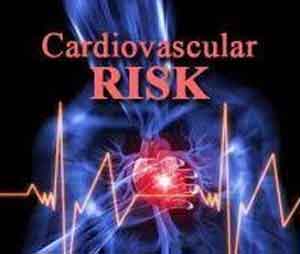- Home
- Editorial
- News
- Practice Guidelines
- Anesthesiology Guidelines
- Cancer Guidelines
- Cardiac Sciences Guidelines
- Critical Care Guidelines
- Dentistry Guidelines
- Dermatology Guidelines
- Diabetes and Endo Guidelines
- Diagnostics Guidelines
- ENT Guidelines
- Featured Practice Guidelines
- Gastroenterology Guidelines
- Geriatrics Guidelines
- Medicine Guidelines
- Nephrology Guidelines
- Neurosciences Guidelines
- Obs and Gynae Guidelines
- Ophthalmology Guidelines
- Orthopaedics Guidelines
- Paediatrics Guidelines
- Psychiatry Guidelines
- Pulmonology Guidelines
- Radiology Guidelines
- Surgery Guidelines
- Urology Guidelines
Earlier the onset of Diabetes greater is cardiovascular risk: Lancet

A new study published The Lancet journal finds that excess cardiovascular and mortality risk varies with age at diagnosis of type 1 diabetes (T1D).
Araz Rawshani, the University of Gothenburg in Sweden, and colleagues conducted the study to determine how age at diagnosis of T1D relates to excess mortality and cardiovascular risk.
For the study, the research team conducted a register-based cohort study of individuals with T1D in the Swedish National Diabetes Register and matched controls from the general population. Individuals with type 1 diabetes were categorized into five groups, according to age at diagnosis: 0–10 years, 11–15 years, 16–20 years, 21–25 years, and 26–30 years. Data were included for 27,195 individuals with T1D and 135,178 matched controls.
"Therapeutic options for diabetes have improved, allowing people with type 1 diabetes to live longer and healthier lives. However, life expectancy remains 8–13 years shorter and cardiovascular disease continues to be the leading cause of morbidity and mortality in type 1 diabetes," writes Marina Basina, Department of Medicine, Division of Endocrinology, Stanford University, in an accompanying editorial.
"Attention has focused appropriately on modifiable cardiovascular disease risk factors such as glucose control, blood pressure, and cholesterol. However, non-modifiable cardiovascular disease risk factors, age at the time of the diagnosis being an example, might also help direct timing of therapy for modifiable risk factors,"
Key Findings:
- During a median follow-up of 10 years, 959 individuals with T1D and 1,501 controls died.
- Among patients who developed T1D at 0 to 10 years of age, the hazard ratios were significantly increased for all-cause mortality (4.11), cardiovascular mortality (7.38), non-cardiovascular mortality (3.96), cardiovascular disease (11.44), coronary heart disease (30.50), acute myocardial infarction (30.95), stroke (6.45), and heart failure (12.90), and non-significantly increased for atrial fibrillation (1.17).
- For patients who developed diabetes at age 26 to 30 years, the hazard ratios were also significantly increased for all-cause mortality (2.83), cardiovascular mortality (3.64), non-cardiovascular mortality (2.78), cardiovascular disease (3.85), coronary heart disease (6.08), acute myocardial infarction (5.77), stroke (3.22), and heart failure (5.07), and non-significantly increased for atrial fibrillation (1.18).
- Across different diagnosis age groups, the excess risk differed by up to five times.
"Age at onset of T1D is an important determinant of survival, as well as all cardiovascular outcomes, with highest excess risk in women. Greater focus on cardioprotection might be warranted in people with early-onset T1D," conclude the authors.
For further reference log on to https://doi.org/10.1016/S0140-6736(18)31506-X
cardiovascularcoronary heart diseaseCVDdeathdiabetesDiagnosisdiseaseearlyHeartheart failureheart-attackLancetmortalityonsetriskstroketype 1
Source : With inputs from LancetNext Story
NO DATA FOUND

Disclaimer: This site is primarily intended for healthcare professionals. Any content/information on this website does not replace the advice of medical and/or health professionals and should not be construed as medical/diagnostic advice/endorsement or prescription. Use of this site is subject to our terms of use, privacy policy, advertisement policy. © 2020 Minerva Medical Treatment Pvt Ltd